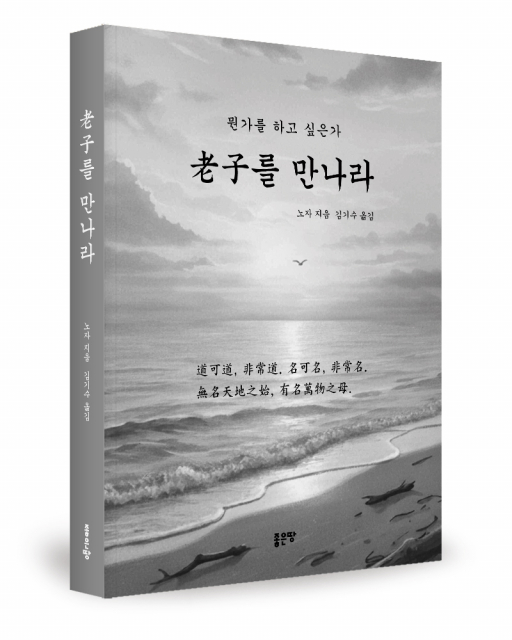
누구나 역사에 있어 각자의 기준이라는게 존재한다. 첫째 충(忠), 효(孝), 인(仁), 의(義), 예(禮)가 담긴 인간의 사유 철학적 기본 심성이고 둘째, 지난 역사를 바탕으로 현재와 미래를 위해 전략을 세우고 사회 발전의 초석을 두는 것이다. 셋째로는 국제적인 입장에서 민족과 국가, 인류에게 이익이 될수 있도록 노력하는 것이다. 역사학이라는 것의 기본 정의는 본래 철학과 인류학으로 분류한다.
철학은 역사학의 정신을 담당한다. 인류학은 역사학의 몸체다. 이와 같은 정의가 확고해야 문헌학에 들어갈 수 있다. 그러나 그렇지 않고 지적인 기록부터 가리키면 역사는 공부할 수 있지만 목적성과 방향성을 잃게 된다. 목적성과 방향성이 상실된 역사학은 자만심과 더불어 심각한 인성 부재를 초래하게 된다. 가장 기초적인 목적성과 방향성 상실로 나오는 대표적인 사례들이 현재 일어나고 있는 인성 부재 현상이다.
인성부재는 전형적인 인지부조화(Cognitive Dissonance)를 가져온다. 이는 가장 인류의 교훈서로 지침되는 역사를 고작 수능을 대비한 외우는 것으로 밀어버렸기 때문이다. 역사학, 인류학, 철학 등 인문학의 몰락은 인간의 기본심성이 몰락하고 있음을 말하고 있다. 위에서 갖추고 있는 정의들은 역사를 공부하기 위한 기본적인 요소이며 이걸 갖추지 않은 자는 역사공부를 한들 패륜아가 되고 만다. 지식은 옳은일에 써야 가장 빛이나는 것이다. 특히 역사학은 더욱 그렇다.
자신이 역사학자라면 학자로써 내 스스로의 역사학을 정의할 줄 알아야한다. 이 일을 왜 해야하는지, 그리고 그에 대한 목적성도 가지고 있어야 한다. 자신이 공부하고 있거나 가르치고 있는 자신만의 정의도 없으면 학자로써 자격이 있는 자인가? 공부로 인해 수많은 논문과 단행본을 남기는 것도 중요하지만 그보다 선행되어야 할 것은 앞서 언급한 기본이다. 기본도 없고 정의도 없고 자신의 학명과 철학이 없는자가 무슨 강단에 설 자격이 있을까? 그래서 논문 많이 쓰고 단행본 많이 쓰고 학위 받고 교수되었다하여 학자가 아니다.
그런 논문 쓰는 기본 프레임을 알거나 강단을 흉내내어 글빨로 쓰는 것은 누구나 다 할 수 있다. 그러니 대학자와 공부만 하는 학자를 가리는 기준은 기본이다. 특히 유럽에서는 이것을 중요시 한다. 그저 역사학 기록과 시대를 낱낱이 꿰고 있다해서 그것이 역사학이 아니다. 역사학은 인류의 삶과 함께하고 있다. 따라서 포괄적인 종합인류학인 것이다. 그만큼 넓고 공부해야 할 것도 많다. 그래서 항상 학문 앞에 겸손해야 한다.
우리가 기록 몇 줄 봤다고 그 시대에 살아본 것도 아니면서 단정하고 함부로 정의하는 것은 가장 학자로써 경계해야 할 부분이다. 개념과 정의, 확실한 근거를 갖고 있다면 어떠한 학문이든 명명하는 것은 자유다. 그리고 그에 대한 평가는 우리 후손 후학들이 판단하지 현재 살고 있는 우리들이 잣대를 세우는 것은 더더욱 아니다. 그 누구도 그에 대한 잣대를 두고 옳고 그르냐에 대한 판단을 함부로 정의할 수 없다. 지금 역사를 논하고 있는 후손, 후세대 후학들이 판단할 뿐이다. 그래서 학문 앞에서 항상 겸허해야 하는 것이다. lukybaby7@gmail.com
*필자/ 정길선.
노바토포스 회원, 역사학자, 고고인류학자, 칼럼니스트, 러시아 과학아카데미 유라시아 고고인류학연구소 연구교수.
*아래는 위 기사를 '구글 번역'으로 번역한 영문 기사의 [전문]입니다. '구글번역'은 이해도 높이기를 위해 노력하고 있습니다. 영문 번역에 오류가 있을 수 있음을 전제로 합니다.<*The following is [the full text] of the English article translated by 'Google Translate'. 'Google Translate' is working hard to improve understanding. It is assumed that there may be errors in the English translation.>
Definition of History
- Jeong Gil-seon Columnist
Everyone has their own standards for history. First, it is the basic philosophical nature of human thought that contains loyalty, filial piety, benevolence, righteousness, and propriety. Second, it is to establish strategies for the present and future based on past history and lay the foundation for social development. Third, it is to strive to benefit the people, the nation, and humanity from an international perspective. The basic definition of history is originally classified into philosophy and anthropology.
Philosophy is in charge of the spirit of history. Anthropology is the body of history. This definition must be firm in order to enter philology. However, if it is not and we start with intellectual records, we can study history, but we will lose purpose and direction. History that loses purpose and direction will lead to pride and a serious lack of humanity. The most representative example of the loss of basic purpose and direction is the current lack of humanity phenomenon.
The absence of humanity brings about typical cognitive dissonance. This is because history, which is the most important lesson for humanity, has been pushed aside as something to be memorized for the college entrance exam. The decline of humanities such as history, anthropology, and philosophy shows that the basic nature of humans is declining. The definitions mentioned above are the basic elements for studying history, and those who do not have them will become unfilial even if they study history. Knowledge shines the most when used for the right things. This is especially true for history.
If you are a historian, you should know how to define your own history as a scholar. You should have a reason for doing this work and a purpose for it. If you do not have your own definition of what you are studying or teaching, are you qualified to be a scholar? It is important to leave behind numerous papers and books through your studies, but what should come before that is the basics mentioned above. How can someone without basics, definitions, and their own academic name and philosophy be qualified to stand on the podium? That is why you are not a scholar just because you wrote many papers, published many books, received a degree, and became a professor.
Anyone can know the basic framework for writing such a thesis or imitate the podium and write with brilliance. So the standard for distinguishing between a great scholar and a scholar who only studies is basic. This is especially important in Europe. Just because you know the historical records and eras in detail does not mean you are a historian. History is with the lives of mankind. Therefore, it is a comprehensive and comprehensive anthropology. It is that broad and there is much to study. That is why we must always be humble before academics.
The most important thing for scholars to be wary of is to define something arbitrarily and decisively just because we have seen a few lines of records and have not lived in that era. If we have concepts, definitions, and solid grounds, we are free to name any academic discipline. And the evaluation of it will be judged by our descendants and future generations, and it is even more so not for us who are living now to set the standard. No one can arbitrarily define whether it is right or wrong by setting a standard for it. Only our descendants and future generations who are discussing history now will make the judgment. That is why we must always be humble before academics. lukybaby7@gmail.com
*Author/ Jeong Gil-seon.
Novatopos member, historian, paleoanthropologist, columnist, research professor at the Institute of Eurasian Paleoanthropology, Russian Academy of Sciences.
![[신간] 아이의 눈으로 본 잔혹한 계급도시... '내가 버린 도시, 서울'](https://img.newspim.com/news/2025/12/01/2512011224253440.jpg)







![[우리말 바루기] ‘하릴없다’는 ‘할 일 없음’이 아니다](https://img.joongang.co.kr/pubimg/share/ja-opengraph-img.png)